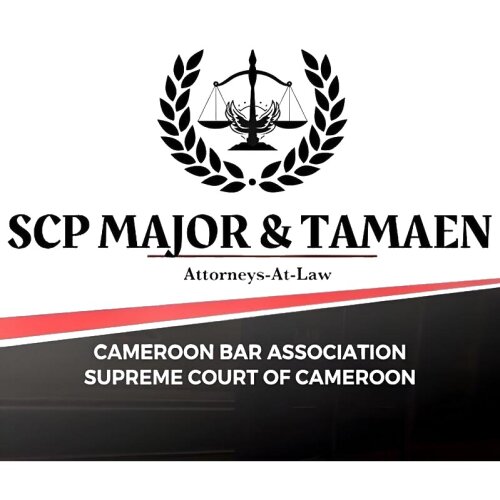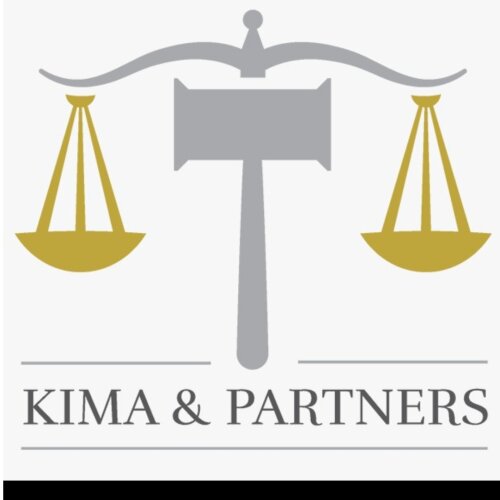Best Banking & Finance Lawyers in Yaoundé
Share your needs with us, get contacted by law firms.
Free. Takes 2 min.
List of the best lawyers in Yaoundé, Cameroon
About Banking & Finance Law in Yaoundé, Cameroon
Banking and financial services in Yaoundé, Cameroon are regulated by a number of national and regional institutions. They maintain a dual banking system comprising the commercial and microfinance sectors. The major regulatory body is the Commission Bancaire de l'Afrique Centrale (COBAC), which oversees banking regulations in six Central African countries, including Cameroon. The Ministry of Finance and the National Credit Council also play significant roles.
Why You May Need a Lawyer
Legal expertise can be crucial in navigating the complex finance and banking structure in Cameroon. Professionals may need legal assistance in understanding and complying with the commercial codes and regulations, company incorporation processes, financial transactions, drafting or reviewing financial contracts, resolving financial disputes, and ensuring compliance with anti-money laundering provisions. Individuals may need legal help in matters of personal finance, mortgages, loans, and understanding their rights when dealing with financial institutions.
Local Laws Overview
Cameroon's banking laws mandate that all banks operating within the country adhere to regulations set by COBAC, this includes capital requirements, international financial reporting standards, and compliance audits. The commercial code governs the conduct of business, including contract creation and dispute resolution. The law also enforces anti-money laundering regulations and rules for obtaining credit. The Consumer Protection Law provides protections for individuals in their interactions with banking and financial institutions.
Frequently Asked Questions
What is the currency in Cameroon?
The currency of Cameroon is Central African CFA franc (XAF).
What are the main banking and financial institutions in Yaoundé, Cameroon?
Some of the main banking institutions include Afriland First Bank, Ecobank, and Societe Generale Cameroun, while microfinance institutions and credit unions also play a significant role.
Can foreigners open a bank account in Cameroon?
Yes, non-residents can open bank accounts in Cameroon, but the process can be complex, often requiring a valid visa, passport, proof of address, and other documents. It is advisable to seek legal counsel to support this process.
What is the process of getting a loan in Cameroon?
The process and requirements for getting a loan vary by institution and the type of loan. Generally, it involves proof of income, collateral, a credit check, and potentially other requirements.
How are financial disputes handled in Cameroon?
Disputes are first handled by the bank's internal proceedings. If a resolution cannot be found, it may then be taken to the court or to the COBAC.
Additional Resources
For additional information, the Ministry of Finance of Cameroon and COBAC websites are excellent resources. The Business in Cameroon site also offers valuable guides and news for investors. When seeking legal assistance, the Cameroon Bar Association provides a list of registered lawyers.
Next Steps
If you require legal assistance in banking and finance matters in Yaounde, Cameroon, it's recommended to contact a reputable lawyer or legal firm experienced in Cameroon's banking and financial sector. Ensure your chosen legal expert is registered with the Cameroon Bar Association. Plan a consultation where you can discuss your situation, potential legal solutions, and understand their fees before moving forward.
Lawzana helps you find the best lawyers and law firms in Yaoundé through a curated and pre-screened list of qualified legal professionals. Our platform offers rankings and detailed profiles of attorneys and law firms, allowing you to compare based on practice areas, including Banking & Finance, experience, and client feedback.
Each profile includes a description of the firm's areas of practice, client reviews, team members and partners, year of establishment, spoken languages, office locations, contact information, social media presence, and any published articles or resources. Most firms on our platform speak English and are experienced in both local and international legal matters.
Get a quote from top-rated law firms in Yaoundé, Cameroon — quickly, securely, and without unnecessary hassle.
Disclaimer:
The information provided on this page is for general informational purposes only and does not constitute legal advice. While we strive to ensure the accuracy and relevance of the content, legal information may change over time, and interpretations of the law can vary. You should always consult with a qualified legal professional for advice specific to your situation.
We disclaim all liability for actions taken or not taken based on the content of this page. If you believe any information is incorrect or outdated, please contact us, and we will review and update it where appropriate.
Browse banking & finance law firms by service in Yaoundé, Cameroon
Yaoundé, Cameroon Attorneys in related practice areas.











